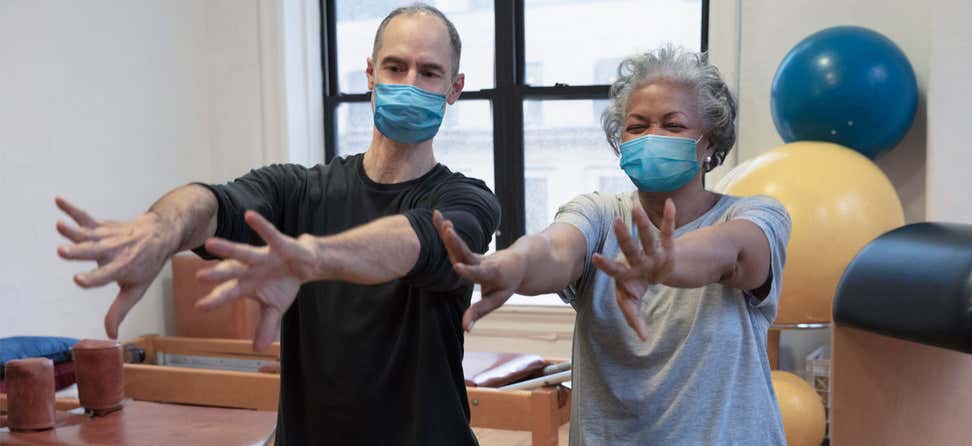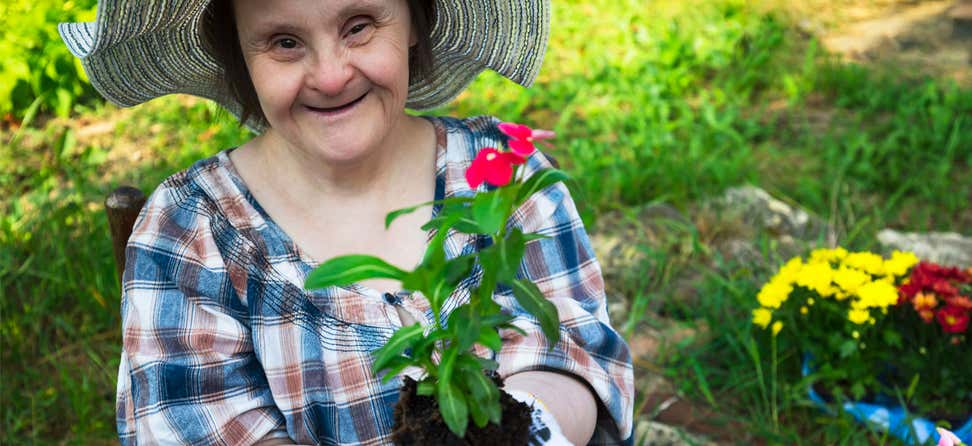Key Takeaways
80% of older adults have at least one chronic condition, and over two-thirds have two or more.
Research has shown that CDSMP significantly increases patient’s self-efficacy and communication with their health care providers, improves self-reported health outcomes, and reduces health care utilization.
Find strategies for increasing the likelihood that participants will complete evidence-based health promotion programs in the community.
7 Strategies to Increase Workshop Completion
Chronic conditions account for 7 of the top 10 causes of death in the United States 3 and 95% of all health care costs for older adults. 2 Chronic disease self-management education interventions, such as the suite of Chronic Disease Self-Management Education programs, originally developed by Stanford University (CDSME), 4 are an effective approach to help people with chronic conditions manage their health and improve their quality of life. 5 Research has shown that CDSMP significantly increases patient’s self-efficacy and communication with their health care providers, improves self-reported health outcomes, and reduces health care utilization. 6
Evidence-based chronic disease CDSME programs have been disseminated widely throughout the United States, reaching more than 420,000 participants since 2006.
There are a number of factors that influence whether or not a participant becomes a “completer.” Gathering research findings and lessons learned from the field, the National CDSME Resource Center has developed a list of tips to support organizations with their efforts to increase the number of participants who successfully complete a CDSME workshop.
1. Develop strong, committed host organizations
Develop strong CDSME host organizations that are knowledgeable about the benefits of self-management and committed to implementing the programs with fidelity. This commitment requires an organization that is willing to invest the time and resources into thoughtful planning, infrastructure development, marketing, program implementation, evaluation, and continuous quality improvement. Some states, such as New Mexico, recommend that staff members at host organizations and implementation sites attend a workshop to gain a full understanding of the program. Staff who have attended a workshop are better equipped to respond to questions that potential participants may ask about the program.
2. Offer Session Zero
A number of states offer Session Zero, an informational session that is given prior to the first session of a CDSME workshop. Session Zero provides an opportunity to explain the program purpose, content, and time commitment; demonstrate activities that take place during the program; answer questions; explain the benefits of the program; and help potential participants assess their readiness to attend a workshop. This pre-session is also a good time to collect baseline participant data. A recent study found that Session Zero may facilitate enrollment, increase participant retention, and foster positive views of the program. 7
Offering Session Zero requires a commitment from the host organization, implementation site, and program leaders. Content may vary, depending on the specific needs of the population served. See resources in the Best Practices Toolkit.
3. Carefully select, train, and provide ongoing support to leaders and master trainers
Master trainers and leaders should be “believers” in the program and committed to offering trainings and workshops. They should understand and be well versed on the core elements of program fidelity. Strong leaders and trainers are generally affiliated with a host or partnering organization from the community, familiar with the cultural background of participants, and open to opportunities for self-improvement. Screening and selecting candidates carefully and assuring that they understand their roles and responsibilities can improve the quality of the program, which in turn can positively affect participant retention.
To increase leader success and participant attendance, New Mexico assigns experienced leaders to serve as mentors for new leaders during their initial trainings or workshops. To provide ongoing support to trainers and leaders, South Carolina disseminates new information and best practices regularly through a newsletter. Other states have also established communication processes and professional development activities to support their workforce, including regular meetings and conference calls to discuss challenges, share ideas, and facilitate learning.
See resources in the Best Practices Toolkit.
4. Utilize data to inform program activities
Monitoring program data through continuous quality improvement processes can help organizations implementing CDSME address challenges and develop strategies for improvement. The workshop completion rate (the percentage of participants who attend at least four of the six sessions) is an important indicator of program quality. Organizations may monitor workshop completion rates and compare them across host organizations and implementation sites within their states, as well as compare with the national completion rate. Low workshop completion rates may indicate the need for corrective action, such as providing additional guidance to leaders, changing the time or location of the workshop, or offering Session Zero to help potential participants know what to expect.
5. Conduct workshops at convenient times and locations
Organizations offering CDSME programs have found that workshops are most successful when offered at convenient times and in locations that are known, trusted, and accessible to participants. Participants are more likely to feel comfortable attending a workshop regularly when it is held in a familiar setting, such as a senior center, church, or community center and offered in a culturally appropriate manner. Massachusetts found success in implementing CDSME in residential public housing settings and adult day care centers; New Jersey is implementing workshops in housing developments; and Oklahoma has focused on offering workshops in churches and community centers.
A benefit of holding workshops in locations where people live or congregate is that transportation may be available. When transportation is not available, states have implemented a variety of strategies to help participants get to the workshops. Massachusetts engages community health workers to help participants enroll in a local transportation service. New Mexico partners with an organization that provides transportation free of charge. New York has strived to coordinate workshops within a 30-minute radius of all residents in the state.
The time that workshops are offered can also affect whether or not participants successfully complete the program. It is important to gauge what works for different groups and to offer workshops at various times so that consumers have a choice. For example, people with arthritis or related pain may not be able to get to an early morning workshop, while others may feel fatigued later in the day due to their health conditions or have difficulty driving after dark. Being mindful of holidays, other important events, and day of the week preferences are also important. Program coordinators should request participant input about their preferences and monitor workshop data to notice how day, time, and location of the workshop affect enrollment and retention.
6. Use familiar faces to provide outreach and marketing of the program
Some states have developed personal outreach and marketing approaches which have proven successful in recruiting and retenting participants. For example, New Jersey engages community health workers, who are current or past residents of the housing development where workshops are being offered, to provide outreach and ongoing support to participants. In Georgia and South Dakota, master trainers and leaders who are well-known in the community promote evidence-based programs, recruit participants, and provide encouragement throughout the workshop.
South Carolina has trained workshop graduates as “ambassadors” to promote the program and recruit participants, using the Centers for Disease Control and Prevention (CDC) guide, “Spread the Word: Marketing Self-Management Education through Ambassador Outreach.”
7. Cross-market CDSME and other health promotion programs
Several states have been able to increase participant recruitment and retention in CDSME workshops by promoting the workshop to people who have participated in another health promotion program. For example, Virginia explained that people who have participated in an evidence-based falls prevention program may be more willing to attend and complete a CDSME workshop. Connecticut reported that participants in NCOA’s Aging Mastery Program®, which introduces the concept of chronic disease self-management, have subsequently enrolled in a CDSME workshop and were more likely to attend regularly due to their positive experience with another program.
Some states have developed short, topic-specific modules to implement prior to the CDSME workshop. For example, the Maryland Living Well Center of Excellence developed the module, “Stepping Up Your Nutrition."
Sources
- Centers for Disease Control and Prevention. Healthy Aging at a Glance 2011. Atlanta, GA: Centers for Disease Control and Prevention, US Dept of Health and Human Services, 2011.
- Centers for Disease Control and Prevention. The State of Aging and Health in America 2013. Atlanta, GA: Centers for Disease Control and Prevention, US Dept of Health and Human Services, 2013.
- Centers for Disease Control and Prevention. Chronic Disease Overview. http://www.cdc.gov /chronicdisease/overview/index.htm. Accessed May 7, 2016
- Stanford University Patient Education Research Center. Chronic Disease Self-Management Program (Better Choices, Better Health® Workshop). Stanford Patient Education Research Center, http://patienteducation.stanford.edu/programs/cdsmp.html. Accessed May 7, 2016
- National Council on Aging. National Study of the Chronic Disease Self-Management Program: A Brief Overview. https://www.ncoa.org/wp-content/uploads/ National-Study-Brief-FINAL.pdf. Accessed May 7, 2016
- Ory, M. G., Ahn, S., Jiang L., Smith, M. L., Ritter, P., Whitelaw, N., & Lorig, K. (2013). Successes of a National Study of the Chronic Disease Self-Management Program: Meeting the Triple Aim of Health Care Reform. Medical Care, 51(11), 992-998.
- Jiang, L., Smith, M.L., Chen, S., Ahn, S., Kulinski, K.P., Lorig, K., Ory, M.G. (2015) The Role of Session Zero in Successful Completion of Chronic Disease Self-Management Program Workshops. Frontiers in Public Health, 2(205), 95 - 100.
This project was supported, in part by grant number 90CR2001-01-00, from the U.S. Administration for Community Living, Department of Health and Human Services, Washington, D.C. 20201. Grantees undertaking projects under government sponsorship are encouraged to express freely their findings and conclusions. Points of view or opinions do not, therefore, necessarily represent official Administration for Community Living policy.









